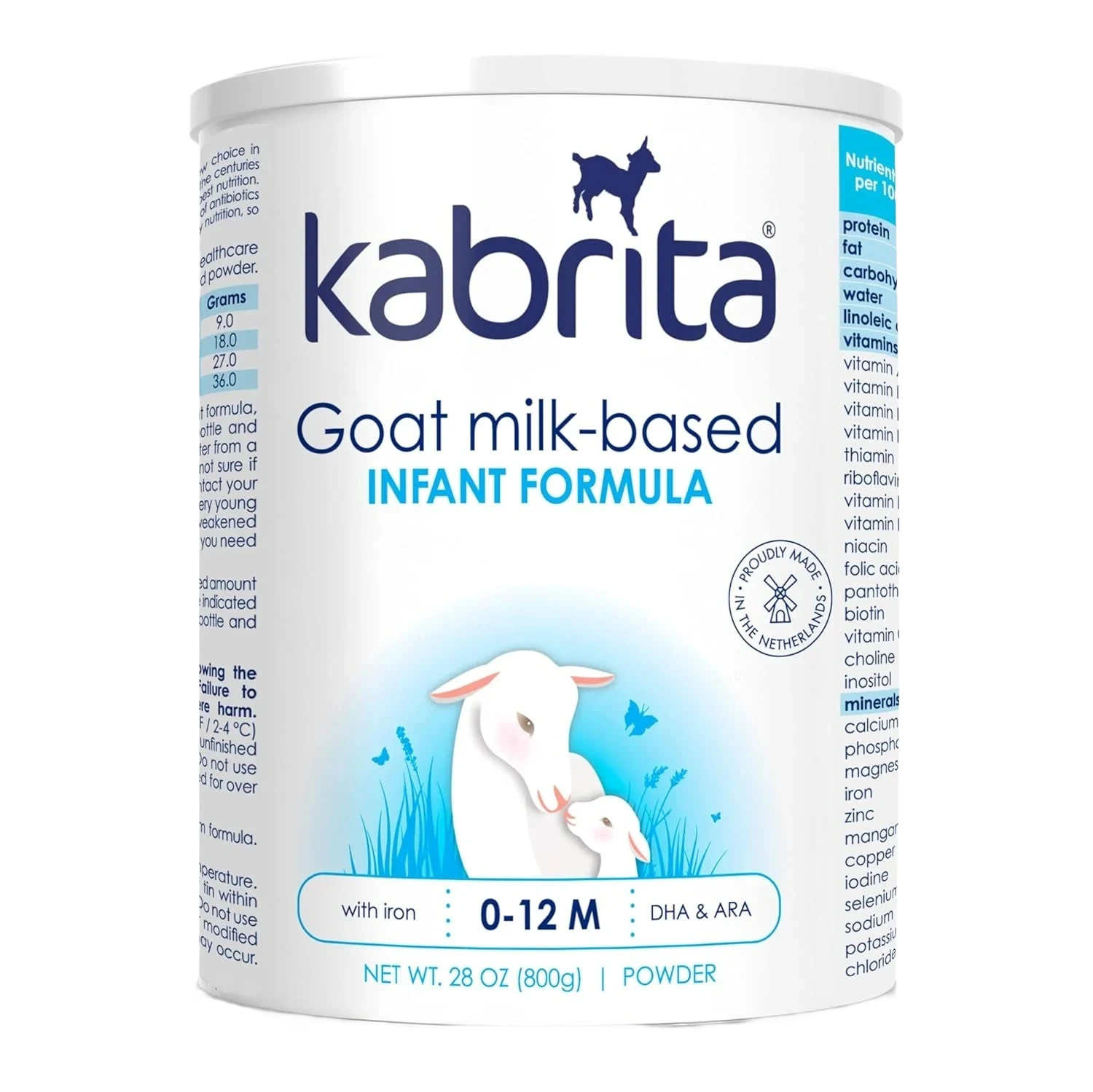kabrita Goat milk-based INFANT FORMULA
formula • For 0-6 month old infants • Consumable 🍝
Product Images
Product Photo

Tap to enlarge
Ingredient List

Tap to enlarge
Is this safe for 0-6 month old newborns to eat kabrita Goat milk-based INFANT FORMULA?
Check for Different Age (6 available)
Ingredients Analysis (42 found)
Common Questions About kabrita Goat milk-based INFANT FORMULA
Is this newborn-safe? kabrita Goat milk-based INFANT FORMULA
kabrita Goat milk-based INFANT FORMULA is not recommended for 0-6 month old babies due to potentially harmful ingredients.
What ingredients should I watch out for?
We analyzed 42 ingredients in kabrita Goat milk-based INFANT FORMULA. 1 avoid. Check the detailed analysis above for specific concerns.
When can newborns start eating formula?
The appropriate age depends on the specific ingredients. This analysis is for 0-6 month old babies. Use the age selector above to check other ages.
⚠️ Important Disclaimers
Product Recognition: Product names are identified by AI and may be incorrect. Always verify product identity yourself.
Safety Analysis: Evaluations are for research only - consult pediatricians for medical decisions.
No Guarantees: Results may be incomplete or inaccurate. Do not rely solely on this analysis.
